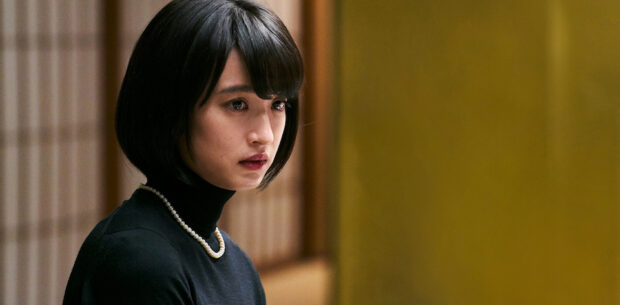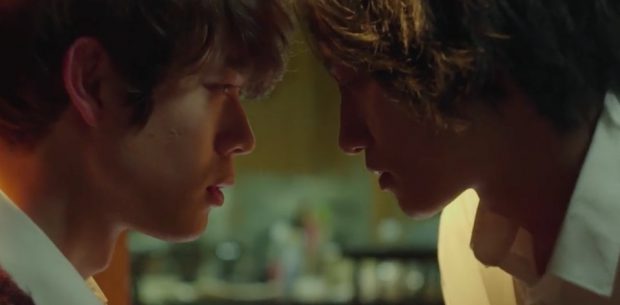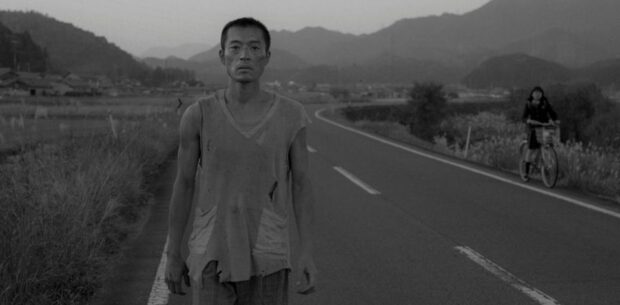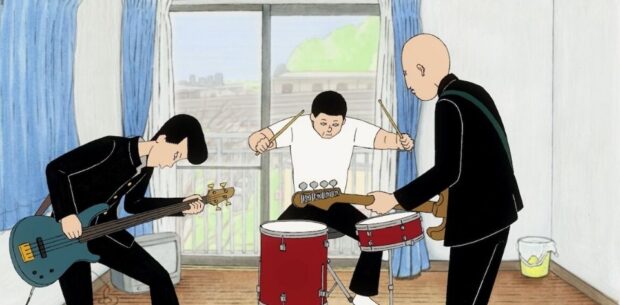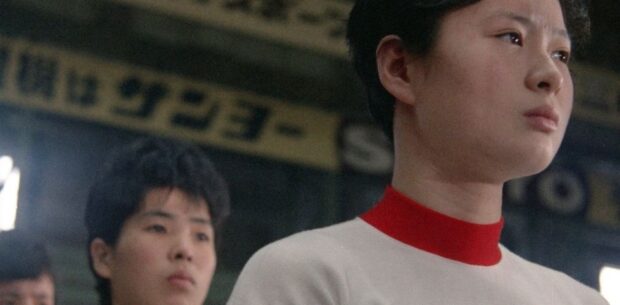
The Nippon Connection Film Festival is back for its 21st edition this year, held exclusively online from 1 to 6 June 2021.
Filled with animation, cultural events and a general celebration of Japan, the full program, tickets and information are now on the festival website at NipponConnection.com.
Ahead of the festival launch, we’ve taken a look at a number of films on the program. As there are 80 films to get through, and only a week to watch them all, here’s a hand-picked selection of 11 favourites we’ve seen over the last year or so.
Artistocrats
Fresh from IFFR 2021, Sode Yukiko’s third feature — following Mime-mime (2008) and Good Stripes (2015) — is an adaptation of a novel by Mariko Yamauchi (Japanese Girls Never Die). It follows the parallel stories of the Tokyo-bsed Hanako Haibara (Mugi Kadowaki) and the provincial Miki Tokioka (Kiko Mizuhara). Beautifully shot and impeccably cast, Yukiko’s film unfolds in bookish chapters to give a portrait of a life, well…lived. Read the full review.
BOLT
It’s been just over a decade since the Tohoku earthquake and subsequent Fukushima nuclear disaster of 11 March 2011. Kaizo Hayashi’s stark black-and-white film splits the narrative three ways, as a crew of men are assigned to the the immediate response to the nuclear leak. In two subsequent sections, we see how their lives are irrevocably changed in the years that follow. It’s a powerful piece that remains gripping until the very end. Read the full review.
The Day of Destruction
One of our picks for best film of 2020. If the world had not been actually plagued by a global pandemic, this would have dropped in Japanese cinemas on 24 July 2020, the opening day of the Tokyo Olympics. If it had, some folks may have labelled it angrily seditious. In the absence of that large event, it stands as a shout of rebellion into the void of an indifferent world. Backed by Japanese death metal, it’s a frenetic mixture of sound, vision and fury that is impossible to be apathetic about. Yes, it’s all a bit shit right now, director Toshiaki Toyoda seems to be saying, but it’s up to you to do something about it. Read the full review.
Extraneous Matter: Complete Edition
Have you ever been unable to decide whether you’ve just witnessed a work of outrageous genius or utter madness after watching a film? Now, have you ever had that feeling multiple times in the first ten minutes of a film? In the abstract plotting, squid-like creatures appear and start to spread across Japan. The creatures become a part of everyday existence, a bit like a pest that you just get used to. At least until that all takes a bit of a turn. Read the full review.
His
Following the 2019 double-punch of Just Only Love and the wonderful Little Nights, Little Love, the prolific Rikiya Imaizumi brings his delicate touch and character eye to contemporary LGBTQI+ issues in Japan, specifically the right for a same-sex couple to be recognised as parents. Read the full review.
Kontora
A visually striking and often mysterious familial drama, Anshul Chauhan’s film doesn’t offer any easy answers, but captivates from the first to last frame. It’s ostensibly about Sora (Wan Marui), a young girl who discovers her grandfather’s Second World War diary and begins searching her hometown for a buried secret. Crisply shot with Maxim Golomidov’s sumptuous photography, it’s hard not to be captivated by this elegant and mystical spin on the coming-of-age narrative. Read the full review.
On-Gaku: Our Sound
This rotoscoped animation has some deceptively sophisticated movement, perfectly capturing that moment in the creative process where it all comes together (and sometimes falls apart). It also skewers some of the tropes of modern manga/anime, despite being an adaptation of the actual manga from Hiroyuki Osashi. Clearly a labour of love, if you don’t dig the animation style just appreciate that it took seven years with over 40,000 hand-drawn frames, many of which were handled by director Kenji Iwaisawa himself.
Red Post on Escher Street
We’ve said it before, and we’ll say it again: if there’s a Sono Sion film somewhere on the festival program, then it makes one of these lists. The prolific Sono has made many films since 2008’s Love Exposure, but few of them have been as accessible or as joyfully strange as this one. As much a mirror to the film industry as it is a celebration of sorts, it forms a curious parallel with Naoki Murahashi’s Extro by way of Sono’s own meta-aware Antiporno. It’s also great to see a Sono film where he’s giving his female leads a sense of power or agency. I loved almost every aspect of this and I hereby demand that Mala Morgan is cast in all the films.
Voices in the Wind
It’s been almost a decade since the tragedy at Fukushima and surrounding areas, yet the conversation around grief and healing is only just beginning for a generation, as this film demonstrates. In a year of some excellent films on the long-lasting impact of the Tōhoku earthquake and tsunami, including the fatalistic It Feels So Good, this rumination on grief is one of the most emotional impact. Read the full review.
The Witches of the Orient
As questions still hang over the Tokyo Olympics going ahead this year, this French documentary from Julien Faraut looks back at a remarkable story about an equally remarkable team of Japanese volleyball players and their unbeaten lead-up to their victory at the 1964 Tokyo Olympics. Faraut splices period manga and anime into outstanding vintage footage of the team training, largely presented without narration and set to discordant music. While not the first document on the so-called Witches of the Orient, and almost certainly not the last, Faraut’s film arrives as a hopeful testament to a group of national heroes. Read the full review.
Yes, Yes, Yes
Following the announcement that family matriarch Sayuri (Nahoko Kawasumi) is dying, each of the family members deal with it in a different way. From the existential opening to the crisp black and white photograph, death and the grieving process are put on stark display in the powerful film from Yano Akihiko. All the performances are excellent, especially the young Kazuma Uesugi who leaves nothing on the table, all the way through to the gut-wrenching final scenes.


